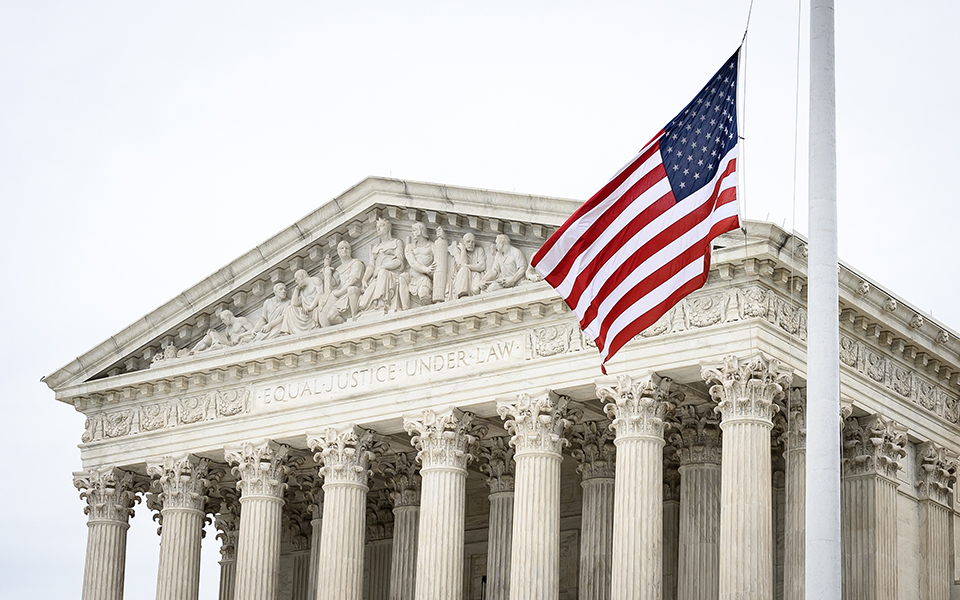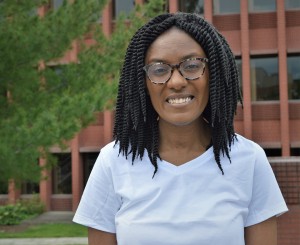
As Judge Ketanji Brown Jackson’s confirmation hearings begin, two California State University, Northridge professors noted the historic significance of a Black woman being nominated for a seat on the U.S. Supreme Court. They say her race and gender will play a significant role in the questioning she’ll face from members of the U.S. Senate’s Judiciary Committee.
“This is huge, even just on the gender component,” said criminology and justice studies professor Brianne Posey. “We have had only five women Supreme Court justices in the 232-year history of the Supreme Court. To have the first Black woman appointed means a lot, particularly to Black women, particularly those considering going into law or are currently in law school. They have dreams. They have ambitions. But they are also very, very mindful to be realistic, as Black women, about those ambitions. Judge Jackson’s nomination is a demonstration that their dreams truly are achievable.”
CSUN political science professor Boris Ricks agreed, saying Jackson “checks all the boxes for what one would consider top qualifications for a Supreme Court Justice.”

Jackson attended Harvard University for college and law school. She served as an editor on the Harvard Law Review and had three clerkships, including one with U.S. Supreme Court Associate Justice Stephen Breyer, whose seat President Joe Biden nominated her to fill. A former public defender, Jackson served as a district judge for the U.S. District Court for the District of Columbia. She was vice chair of the U.S. Sentencing Commission and last year was named a federal judge on the U.S. Court of Appeals for the District of Columbia Circuit.
“She has more years of experience as a judge than five of the sitting Supreme Court justices had when they were nominated,” Ricks said. “That being said, I am sure she is going to face a contentious hearing. She’s a Black woman, and that alone makes some people uncomfortable. You already have comments coming from the conservative right attempting to undermine the meritocracy of her achievements, asking for her college transcripts, suggesting that she’s purely a product of ‘affirmative action’ and didn’t ‘earn’ all that she has accomplished so far.
“The senators are going to have to be very careful moving forward about how they talk about Judge Jackson,” Ricks continued. “I think it’s going to be very clear what their intent is with their questions, when she has checked off every box that would make a w hite male candidate clearly qualified for the position.”
Posey noted that women of color are often held to a much higher standard, “near perfection,” than other candidates for the same position.

“Even then, those qualifications are still not considered good enough,” Posey said. “I consider this to be an extension of sexism and racism. It’s 2022, so you can’t say ‘I don’t want you to have this position because you are Black or a woman, or because you are a Black woman.’ Instead, they look for something else — no matter how small or how fickle it is — to say she is not qualified. It’s a way to exercise legal sexism and racism by discounting these candidates, even if they are outperforming or are overqualified for the position already.”
Posey and Ricks said both of the women of color nominated to the U.S. Supreme Court, Jackson and Associate Justice Sonia Sotomayor, faced a level of scrutiny that their white counterparts did not.
“We actually have two sitting Supreme Court justices who have been accused of sexual misconduct and still manage to remain on the bench to this day,” Posey said. “Yet, when it comes to a woman of color, despite the fact she doesn’t have any allegations of misconduct of any sort, there are those who are going to scour her personal history and history of her extended family members in an effort to find something to disqualify her.”
Ricks said Jackson’s confirmation hearing will “prove interesting,” given that just a year ago many of the Republicans of the Senate Judiciary Committee voted to confirm her as a federal appellate judge.
“Now, these same Republican senators who just confirmed her are confronted with a quandary,” he said. “She was clearly qualified to be federal judge, but now they have questions about her ability to be a Supreme Court justice when her judicial experience is more extensive than the last person they confirmed to become Supreme Court justice, Amy Coney Barrett.”
Posey agreed, noting that in addition to her extensive qualifications, Jackson also represents “history.”
“She represents a population of people in this country that we have marginalized, exploited and oppressed for centuries,” Posey said. “It has only been in the last 50 years that we have realistically attempted to acknowledge that as a country. Her nomination may be associated with guilt and shame for some people who don’t want to acknowledge or accept this country’s past. And that may make some people uncomfortable. But her nomination represents a step forward for so many people, and an acknowledgement that representation matters.”



Comments are closed.